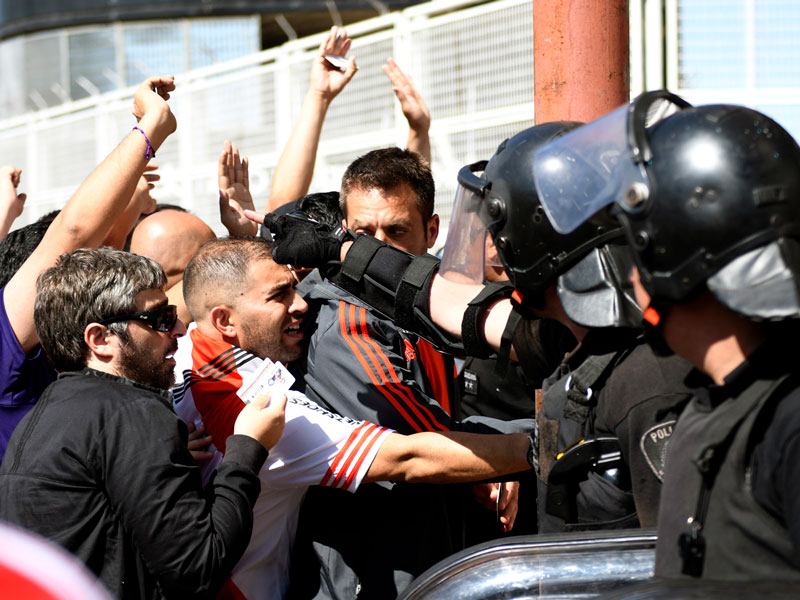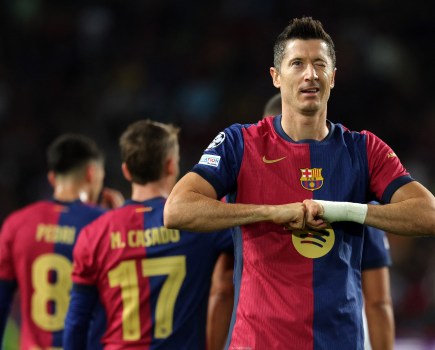Tim Vickery’s Notes From South America: Copa Libertadores Problems Continue To Mount
The Copa Libertadores is named in tribute to those who fought for South America’s independence from Spain in the early nineteenth century. So the choice of Madrid as the venue for the second leg of this year’s final is extraordinary insensitive. Then again, these are extraordinary times.
Amid the howls of outrage, the Brazilian/Uruguayan journalist Martin Fernandez added his voice to the criticism of the venue. “But,” he wrote in Rio’s ‘O Globo,’ “it should be remembered that before taking the game to Europe there was an attempt to play it in Buenos Aires, full of undue concessions to try to mitigate the violence that was known to be uncontrollable; switching the game to the weekend, in daylight, with no visiting fans.
“This attempt was sabotaged by those who should enjoy the privilege of being close to the spectacle. Footballers need to arrive alive at the stadium where they are going to play for their teams. If the price needed for this is distance, then the game should be played in Madrid, in Doha or on Saturn.”
Of the three, Doha would probably be the best solution. The very distance from South America, in this case, might be an advantage, the winner stays in the Arab Emirates for the Club World Cup and there are no historical echoes of political subservience.
Those arguing that the game should at all costs remain in Argentina are running into an obvious problem; River Plate must face some form of punishment for the action of their fans. The regulations make it quite clear that clubs must bear some responsibility for what their supporters do outside the stadium. Indeed, River Plate began this year’s campaign with an away game played behind closed doors; Brazil’s Flamengo were punished for the behaviour of their fans in last year’s Copa Sudamericana final, including incidents that took place both inside and outside the Maracana.
River’s position, that the attack on the Boca bus “is in no way the responsibility of the club” is straight from fantasy island. It looks like bluster. River would open themselves to serious sanctions if they decline to play in Madrid – and the only way they can qualify for next year’s Libertadores is to win this one, giving them a powerful incentive to turn up.
Boca, meanwhile, believe that they should be awarded the title and that River should be disqualified. This is clearly payback for 2015; in the second round match, River’s players were attacked as they returned to the pitch after half time. A Boca fan cut his way through the protective inflatable tunnel and threw pepper spray at them. River were unable to continue, and Boca were kicked out of the competition.
There is, though, clearly a difference between 2015 and 2018. Events inside the stadium are solely the responsibility of the club. When the attack takes place 700 metres away, it can be shared with an inept police operation.
So River will, presumably, play under protest – and so will Boca, who have threatened to take the case to the Court of Arbitration for Sport. The endless quarrel between sub-tropical Tweedledum and Tweedledee is part of Conmebol’s justification for taking the game out of Argentina. Amid the point scoring, any notion of the common good flies out of the window.
So why Madrid? Firstly because Conmebol are desperate for the game to go ahead. The cash-strapped organisation have sold the TV rights all over the world, and so they need to supply some content. In contrast with Doha, Madrid offers the promise of a match with atmosphere – and the Spanish and city authorities are taking full responsibility for the security arrangements.
From Spain’s point of view, the precedent established could strengthen the campaign to take La Liga matches to the USA. And there is no doubt that the match plays a role in the race to stage the 2030 World Cup.
The Uruguay-Argentina-Paraguay bid has suffered a significant blow. By far the biggest of the three countries, Argentina plans to stage the bulk of the matches – but has proved itself incapable of staging this one. So if Sunday goes off without a hitch, then Spain, a likely rival bidder, has ridden to the rescue.
Don’t forget to follow World Soccer on Facebook and Twitter.







